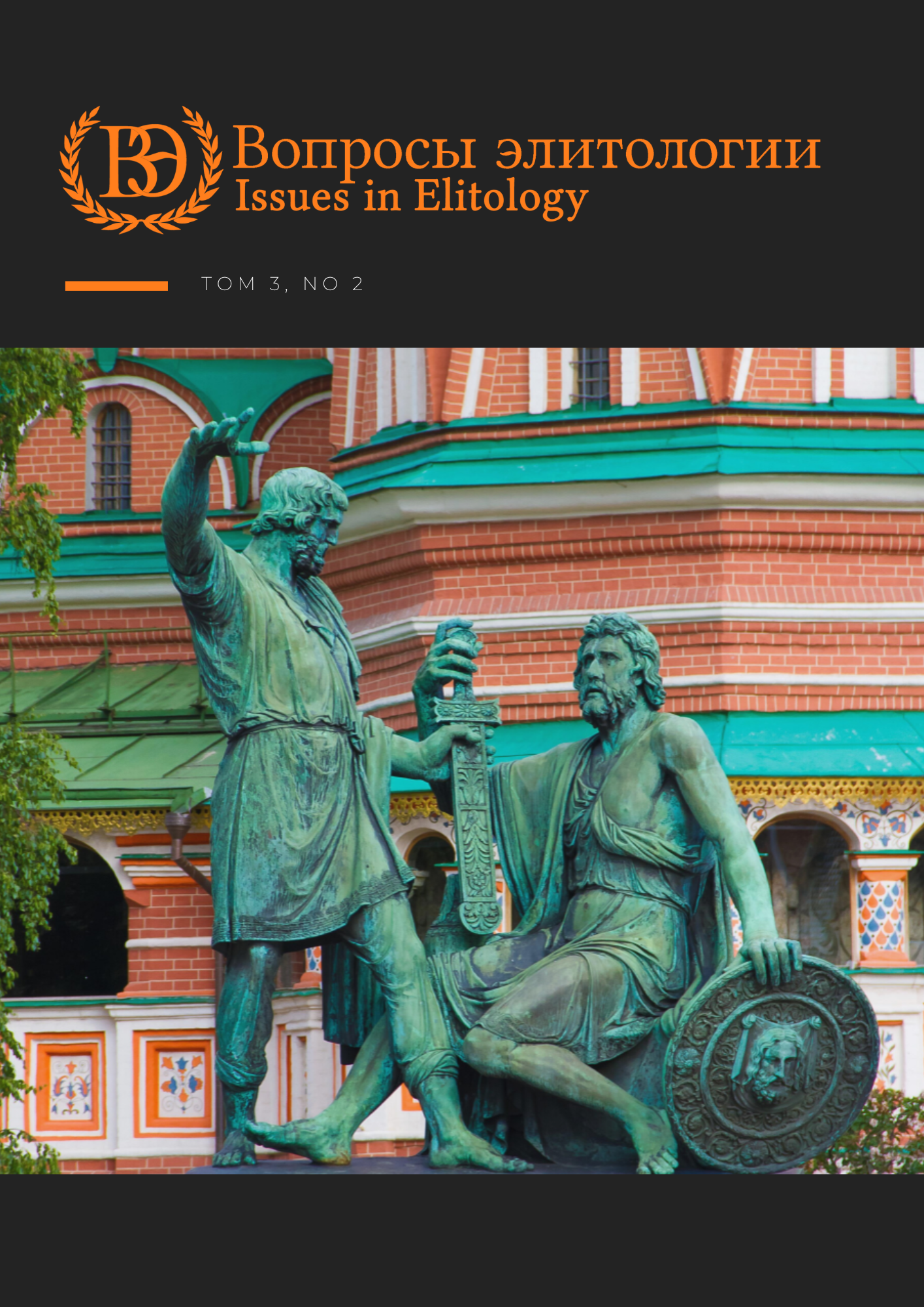Аннотация
В статье рассматривается роль этнической элиты в виктимизации этносов. Обосновывается целесообразность рассмотрения виктимизации коллективного сознания этнических общностей через призму участи этнических элит в этнополитических конфликтах с целью достижения желаемых статусных позиций. Доказывается, что виктимность этнических общностей может обладать детерминирующим воздействием на их субъективное восприятие этностатусного положения, которое впоследствии само будет способствовать развитию и закреплению комплекса жертвы.
Выделяются уровни виктимизации коллективного сознания. Обозначаются и определяются составляющие этнической элиты и ее роль в функционировании этнических общностей, ключевые направления рациональной деятельности этнической элиты. Анализируются базовые стратегические направления и мотивации деятельности сегментов элитных групп этносов. Выделяются ключевые направления усилий этнических элит по виктимизации коллективного сознания этнических общностей, их цели и возможные последствия.
Литература
Andronnikova, O. O. (2019). Ontogenetic concept of personality victimization. (In Russian).
Avksentiev, V., Aksyumov, B., & Gritsenko, G. (2020). Ethnicity in political conflicts: The Ethnization of politics and the politicization of ethnicity. Political Science, 3, 74–79. doi: 10.31249/poln/2020.03.04 (In Russian).
Bakhrevsky, E. V. (2013). Modern Concepts of «Genocide» of the Peoples of the Caucasus. Problems of National Strategy, 5, 91–112. (In Russian).
Casey, M. (2022). Decolonize Russia. Retrieved from The Atlantic website: https://www.theatlantic.com/ideas/archive/2022/05/russia-putin-colonization-ukraine-chechnya/639428/
Chernovitskaya, Y. V. (2008). Indirect genocide in modern society (socio-philosophical aspects). Questions of Philosophy, 10, 165–171. (In Russian).
Gpstunskaya Ya. I (2007). Psychological and pedagogical assistance to the family in the process of re-socialization a teenager with deviant victimgood. (In Russian).
Harff, &Gurr TR., B. (1989). Victims of the State: Genocides, Politicides and Group Repression since 1945. International Review of Victimology. doi: 10.1177/026975808900100103
Inkizhekova, M. S. (2010). Ethnic elite as a historical and cultural phenomenon. Proceedings of the Ural State University, 1, 91–97. (In Russian).
Koposov, N. (2011). The memory of a strict regime: History and politics in Russia. Retrieved from Russian Journal website: http://www.russ.ru/pole/ (In Russian).
Kosov, G. V. (2017). Some trends in the information support of national-cultural and ethno-religious self-determination in the context of modern social challenges (based on the materials of the North Caucasian media). Social Policy and Social Partnership, 12, 26–33. (In Russian).
Makovskaya, D. V. (2016). Inconsistency of ethnic status as a factor of territorial disintegration. POLITEKS, 12(1), 129–142. (In Russian).
Malakhov, V. (2007). Ethnicity in the Big City. Retrieved from Russian Journal website: http://www.russ.ru/pole/Etnichnost-v-Bol-shom-gorode. (In Russian).
Nalchadzhyan, A. A. (2011). Ethnic victimology and psychohistory of ethnocide. Lusakn. (In Russian).
Veleshko, E. N. (2007). Influence of victim factors on the political behavior of the Crimean Tatar repatriates. Simferopol. (In Russian).
Vishnevetsky, K. V. (2012). Criminogenic victimization of social groups in modern society: Monograph. Law and Law. (In Russian).
Wallengren, S., Wigerfelt, A., Wigerfelt, B., & Mellgren, C. (2020). Visibility and vulnerability: A mixed methodology approach to studying Roma indi-viduals’ victimization experiences. International Review of Victimology, 26(3), 276–294. doi: 10.1177/0269758019885676
Wodak, R. (2018). The Politics of Fear. What does right-wing populist discourse mean? Humanitarian Center. (In Russian).
Zakharov, A. (2012). Sleeping Institute»: Federalism in Contemporary Russia and in the world. New Literary Review. (In Russian).

Это произведение доступно по лицензии Creative Commons «Attribution» («Атрибуция») 4.0 Всемирная.


